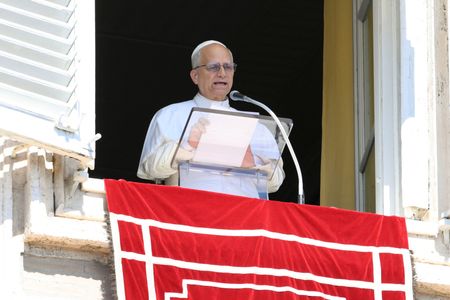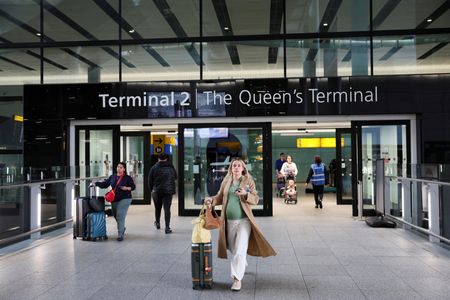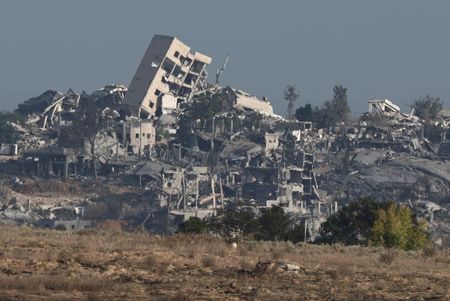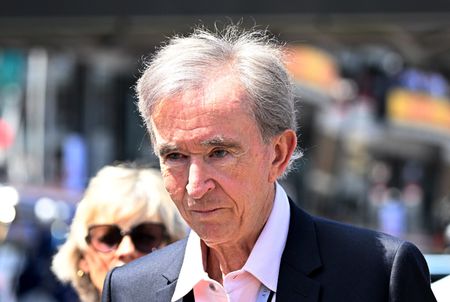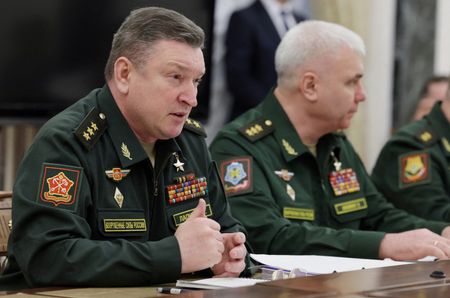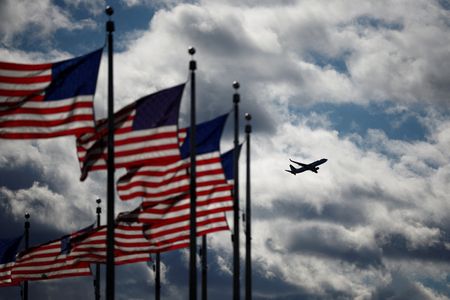By Catarina Demony, Vitalii Yalahuzian and Alistair Smout
LONDON (Reuters) – Prime Minister Keir Starmer is expected to announce on Sunday Britain’s recognition of a Palestinian state in a break with long-standing policy despite stiff opposition from Israel and disapproval from the United States, the UK’s closest ally.
Deputy Prime Minister David Lammy confirmed that Starmer would announce his decision later on Sunday and said any recognition should be seen as part of a peace process leading to an eventual two-state solution.
Britain is expected to join more than 140 other members of the United Nations which have recognised a Palestinian state. But its decision carries symbolic weight as Britain has long been a key ally of Israel and played a key role in its creation as a modern nation in the aftermath of World War Two.
A number of other countries including France, Canada, Australia and Belgium are also expected to formally recognise a Palestinian state this week at the United Nations General Assembly in New York.
“Any step to recognise (a Palestinian state) is because we wish to keep alive the prospects of a two-state solution,” Lammy told Sky News.
In a move that put Starmer at odds with U.S. President Donald Trump, Britain issued Israel with an ultimatum in July saying it would recognise Palestine at the United Nations General Assembly unless Israel took steps to end the “appalling situation” in Gaza.
GAZA CEASEFIRE IN TATTERS, SAYS LAMMY
Starmer said in July that Britain would recognise Palestine unless Israel reached a ceasefire with Hamas, let more aid into Gaza, made clear there would be no annexation of the West Bank, and committed to a peace process delivering a two-state solution – a Palestinian state co-existing alongside Israel.
“Since that announcement in July, in fact, with the attack on Qatar, a ceasefire at this point lays in tatters, and the prospects are bleak,” Lammy said, noting Israel had also moved forward with a settlement plan.
Lammy said it was important to draw a distinction between Hamas and the Palestinian people. He told the BBC: “Do we say we have to wait for the perfect conditions before we can recognise a Palestinian state… Do we say to them: ‘No you cannot have that Palestinian state that is your dream’?”
Starmer has been under pressure to recognise a Palestinian state from many of his own lawmakers, angry at the rising death toll in Gaza and images of starving children.
Israeli Prime Minister Benjamin Netanyahu said this month there will never be a Palestinian state and has accused countries that recognise Palestine of rewarding “Hamas’s monstrous terrorism” that precipitated the war in October 2023.
Trump, who met Starmer on Thursday in England, said the two leaders had agreed to disagree on the issue. At their press conference Trump chose to speak about the suffering of Israelis rather than Gazans.
Londoners voiced mixed reactions to Britain’s likely recognition of a Palestinian state.
“A whole lot needs to happen and peace needs to come to that region,” said 56-year-old charity director Michael Angus. “This is the first step in actually acknowledging that those people have a right to have somewhere to call home.”
Retiree Stephen, who declined to give his last name, said the government “probably means well” but argued the move was misguided: “They are sort of abandoning Israel… and with Hamas, (they) are almost sort of supporting them.”
BRITAIN OWES MORE THAN RECOGNITION, SAYS CAMPAIGNER
Lammy previously said Britain has a historic responsibility to facilitate a two-state solution, dating back to the 1917 Balfour Declaration which pledged that the creation of a Jewish state would not infringe on Arab rights.
British troops captured Jerusalem from the Ottoman Empire in 1917, and in 1922 the League of Nations awarded Britain an international mandate to administer Palestine during the post-war deal-making that redrew the map of the Middle East.
“While a welcome step, Britain owes Palestine far more than recognition,” said Victor Kattan, public international law professor and advisor to the ‘Britain Owes Palestine’ campaign, arguing for an apology and reparations as Britain “engineered the violent divisions that continue to this day”.
(Reporting by Catarina Demony, Andrew MacAskill, Alistair Smout, Marissa Davison and Vitalli Yalahuzian; Editing by Hugh Lawson, Gareth Jones and Christina Fincher)



